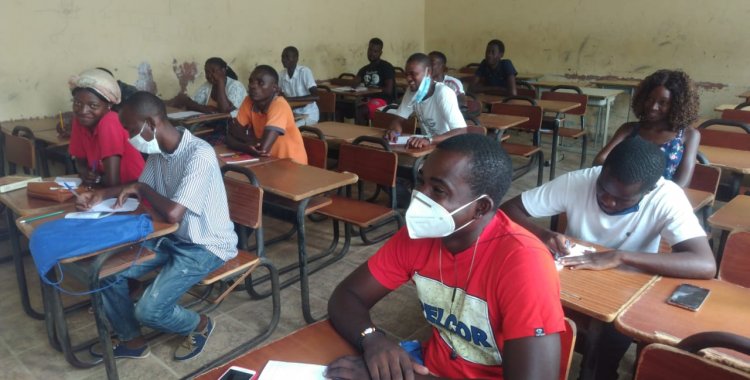Umbundu, spoken mostly in the southern region of Angola, is the second most spoken language in the country after Portuguese, the only official language in Angola, and for the writer this should be a "co-official language" of the country.
According to the writer, "the election of an official Bantu language, in parallel with the Portuguese language, would create a second phonology of the official Angolan speech".
"Along with many countries that have chosen the majority language as the official language, Angola can choose Umbundu as the other official language, as it is the majority Bantu language in Angola", he said.
José Luís Mendonça, who was speaking about "The Legacy of History and Culture for Citizenship", on the first day of the second "Conference National Think Angola", said that almost half a century of independent Angola "it is urgent to rescue some values of our heritage ancestral".
"With a view to valuing the totality of culture and, consequently, the tolerance and inclusion of the common citizen in the construction of Angola. Historical values, which represent the soul of the Bantu peoples, such as the languages and oral literature that emanate from them", he stressed.
For the writer, this "rescue" is imperative, because "the national unity of Angolans is forged on the legacy of colonization, the Portuguese language".
"[Angola] is a creation of the Portuguese language. Being Angolan is carrying, in the collective subconscious, the memory of the colonizer's language that overlaps the residual Bantu memory", he said.
The university professor, on the other hand, believes that the "exclusive, regular and prolonged use of the Portuguese language, an Indo-European language, shapes the Angolan citizen into a Eurocentric mental structure, under the guise of Africanity".
"Today, developed nations in Europe and Asia are committed to promoting their languages. In Finland, students learn the two official languages, Finnish and Swedish, plus two foreign languages," he said.
The countries "that did not have this opportunity", he stressed, "could not go further in terms of economic, social, cultural, political and democratic development".
"We do not have any doubts or hesitations in proposing the co-officialization of the Umbumdu language, alongside Portuguese, for all the reasons mentioned above", he noted.
"In the same vein, we reject the thesis that the teaching of Bantu languages could be the cause of territorial secession based on the ethnolinguistic assumption. The cause of the aspiration to territorial secession is clearly visible and has no cultural roots", he stressed.
It does have, he argued, "economic roots, in the mismanagement and regional distribution of extractive resources, especially oil and diamonds".
"How can there be rejection of the adoption of an African language, already spoken by a majority of the population, as a co-official language, when the Lusophone language is accepted without blinking as the language of all of us? instituted this officialization?", questioned the journalist.
José Luís Mendonça also pointed out that, in relation to the "problem of languages, so far", we have only "watched improbable hypotheses, which led to unconstitutionality by omission of our executive".
"Greater appreciation of Angolan languages" is among the country's challenges also presented at this conference by Angolan sociologist Tânia de Carvalho.







